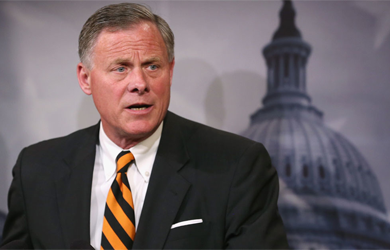After President Obama was elected, the right-wing Judicial Confirmation Network changed its name to the Judicial Crisis Network and altered its mission from “working to ensure a fair appointment process of highly qualified judges and justices” to blocking anyone Obama appoints to the bench.
The group’s name and mission statement aren’t the only things to have changed under a Democratic president. JCN’s chief counsel Carrie Severino appeared last week on Sandy Rios In The Morning to decry the Senate’s recent move to modify the filibuster to allow a simple majority to end debate on most nominees – a rules change that the JCN once said it supported “regardless of what party’s in power.”
“The 60 vote majority is there because we need to have both parties working together,” Severino said. “You don’t want to do things by a bare majority vote all the time, and it is actually a benefit to get something that has a larger consensus. I don’t know if Thomas Jefferson initiated it but I wouldn’t be surprised because those kinds of consensuses things that our founders thought were important.”
But during the Bush era Severino’s predecessor, Wendy Long, now a Republican politician, said in 2006 that finding a “consensus” over judicial nominees is “not the right thing to do”:
Seeking a ‘consensus’ candidate is not the right thing to do. It is not what the Constitution contemplates, in our system built on the consent of the governed. Majorities didn’t elect George W. Bush and 55 Republican Senators to do that. For the President to choose a Justice on this basis would retroactively disenfranchise the voters in these elections. The people elected the President so that he would exercise his own judgment according to the criteria he stated in two elections. By definition, those will never be ‘consensus’ nominees. Justices Ginsburg and Breyer were not ‘consensus’ nominees, nor should any Republican nominees be — particularly when Republicans control the Senate, for heaven’s sake.
But the real issue with Severino’s claim is that Senate Republicans didn’t block Obama’s three picks for the DC Circuit Court because they weren’t “consensus” candidates. Rather, GOP leaders explicitly said they would oppose any person President Obama nominated to the court — a position that they took before even knowing who the nominees would be.
Plus, Republicans’ unprecedented obstructionism — cheered on by the JCN — makes it hard to believe that they were merely hoping for “both parties to work together” to find a “consensus” as Severino maintains.








